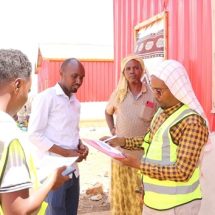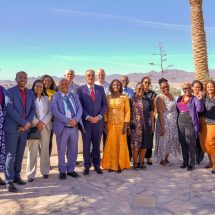Nairobi, Kenya, 29 August 2013 – UN-Habitat has held the first consultative workshop on new opportunities for slum upgrading with better governance through a Participatory and Inclusive Land Readjustment (PILaR) tool.
PILaR, one of UN-Habitat’s new initiatives, aims to promote the supply of serviced urban land through a negotiated process. It is also a tool that can help bring about sustainable densities through planned densification and the redevelopment of dilapidated neighborhoods in addition to the upgrading of slums.
“We need to find new solutions to our urban problems. Urban land is too precious a component for policy makers and for communities because its value changes. Public sector working with the communities located on, and linked to, the land must be able to predictably influence the increase in the value of the land and benefit from it. They must be in the driving seat in regards to negotiations between the public and the private sector around the burdens and benefits of urban development,” said Clarissa Augustinus, Head of Land and the Global Land Tool Network at UN-Habitat.
Today, close to one billion people live in slums where they continue to face deprivations such as lack of drinking water at an affordable price, proper sanitation, overcrowding, inadequate structures and settlements located in hazardous areas as well as insecurity of tenure.
Together, participants drawn from Kenya, Ghana, Antigua, Fiji, Trinidad, Uganda, Namibia, Rwanda, Philippines and Egypt will discuss and design national slum upgrading work programs using land readjustment.
The three-day workshop held at the UN-Habitat Headquarters in Nairobi, will further elaborate on UN-Habitat’s vision for the improved use of urban land and the creation of sustainable cities.
Additional information:
To learn more on what Participatory Slum Upgrading means, watch this video. More on PILaR here.
Photo Courtesy of: UN-Habitat/ Ivy Mutisya











